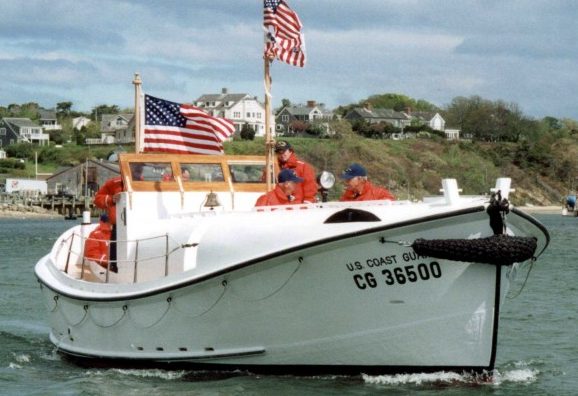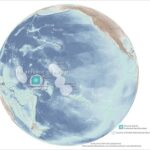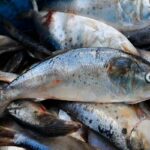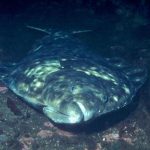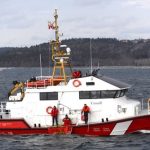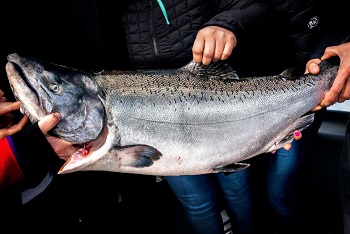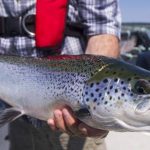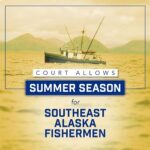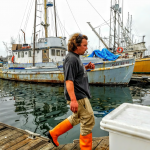Monthly Archives: August 2018

Gov. Walker declares economic disaster for Chignik fisheries
Citing a preliminary harvest count of 128 sockeye salmon and rapidly declining escapement counts, Gov. Walker declared an economic disaster for the Chignik fisheries region Thursday. According to a Thursday release, the governor’s decision is a result of harvest numbers that pose a threat to communities in the region that rely on subsistence and commercial salmon fishing, including Chignik, Chignik Lake, Chignik Lagoon, Ivanof Bay and Perryville. >click to read<10:06

PETA is coming after Baltimore’s beloved crab
The animal rights group selected the local crustacean as the mascot for its latest pro-vegan campaign. A billboard in Baltimore pictures a crab with the words, “I’m me, not meat. See the individual. Go vegan.” Danielle Ohl, a reporter for the Capital Gazette, tweeted a picture of the billboard Thursday, and it set off some strong reactions. Locals took to Twitter to share their reactions to the billboard that was erected yesterday on the corner of East Baltimore Street near the Shot Tower. Jimmy’s Famous Seafood chimed in, too. “I thought it was fake, honestly,” said Tony Minadakis, owner of the restaurant. “I was shocked. It was pretty tone-deaf.”>click to read<08:58

Gloucester: Fed seizure of accounts closes fish auction
Last Friday night, without any notice, the U.S. Labor Department seized the bank accounts of the Cape Ann Seafood Exchange, leaving the fish auction and seafood processor unable to pay fishermen for landed fish and imperiling even further its ability to profitably operate on the Gloucester waterfront. CASE owner Kristian Kristensen first knew there was trouble afoot when he started receiving text messages from his bank that his business balance had dipped below $25. “I didn’t put the pieces together until Saturday,” Kristensen said Thursday. “That’s when I knew it was the Department of Labor.” What followed was a business nightmare, as Kristensen tried to contact fishermen and other vendors about his inability to access his bank accounts for payments. >click to read<19:41
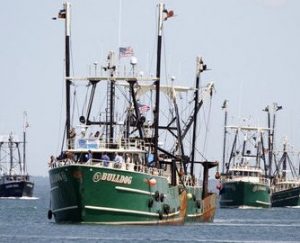
Former New Bedford Fishing Captain Pleads to Hindering Coast Guard Inspection at Sea
A former New Bedford fishing boat captain pleaded guilty Thursday to interfering with a U.S. Coast Guard inspection and faces sentencing Nov. 28, federal prosecutors said. Thomas D. Simpson, 57, of South Portland, Maine, pleaded guilty in U.S. District Court to one count of destruction or removal of property subject to seizure and inspection, according to a news release from the U.S. Attorney’s Office. On May 31, 2014, the Bulldog was engaged in commercial fishing off the coast of Massachusetts when the USCG boarded the vessel to perform a routine inspection, the news release said. At the time of the boarding, the Bulldog’s net was deployed in the water and the crew was actively fishing. >Click to read<18:49
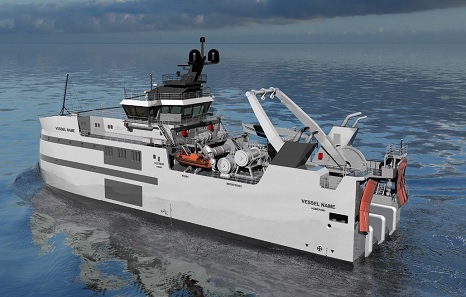
Ulstein Unveils New Trawler Series
Norwegian ship designer and shipbuilder Ulstein has launched a new series of fish trawlers with state-of-the-art ship solutions for sustainable fishing methods and processing. The trawlers incorporate a number of innovative features, including Ulstein’s signature X-Bow hull design and environmentally friendly hybrid propulsion systems. Ulstein Group has a long tradition of cooperating with different actors when developing new and innovative ship designs and solutions. On this project, Ulstein has worked closely together with Nordic wildfish. Both companies were established in 1917. >click to read<17:15
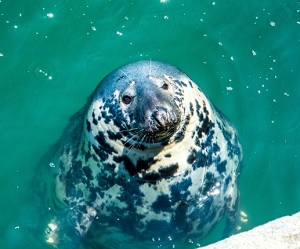
A Provincetown fisherman’s appraisal of the great white dilemma
It finally happened: two worlds collided. The great white shark world collided with the human world and the result was a man being bitten at Longnook Beach. We’re thankful he was saved and is recovering. But how did we get here? It started in 1972 with the Marine Mammal Protection Act, which prohibits hunting or harassing marine mammals, including seals. Before this law fishing communities hunted seals for their pelts and to manage the herd, because they eat enough fish to threaten the livelihoods of commercial fishermen. There were actually payments made by fishing towns to anyone who brought in a seal nose. The threat to commercial fishing was seen as very real. With the 1972 law, the hunt was stopped and seals began reproducing at a far greater rate than was expected. >click to read<11:55
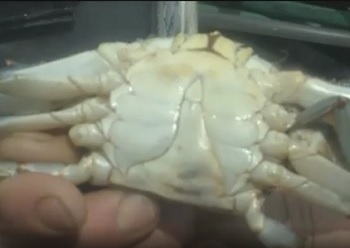
Hermaphrodite Crab Spotted Near Deal Island
A rare catch in the Tangier Sound left many watermen puzzled. The strange crab seemed to display both male and female characteristics. It’s almost as if you drew a line down the middle, the right side of the crab female– the left, male. A group of watermen discovered the hermaphrodite crab Monday morning. Tom Wheatley was sorting through hundreds of crabs when he quickly spotted the unique crustacean, unsure of which pot to place it in. “I was combing through a box of crabs and this one crab caught my eye. It threw me off for a second,,, Video>click to read<10:57
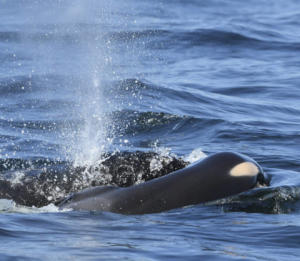
Giving up Chinook Is a Nice Idea but It Will Not Save the Orcas
The Seattle Times published a heart-warming/heart-breaking story Wednesday about chef Renee Erickson, who recently announced that she will be yanking Chinook salmon from her restaurant menus in response to Tahlequah, aka J35, the Salish Sea orca who became an international cause célèbre after carrying her dead baby for 17 days. “It’s sad,” Erickson told the Times. “I love eating [chinook], and I grew up catching it.” But, she added, “The biggest gut wrench is that we have starving orcas. We are eating the salmon they need to eat.”,, Taking chinook off restaurant menus (and your own shopping list) is a commendable action. But, unfortunately, it won’t save the whales. It’s kind of like every other environmental crisis: >click to read<09:59
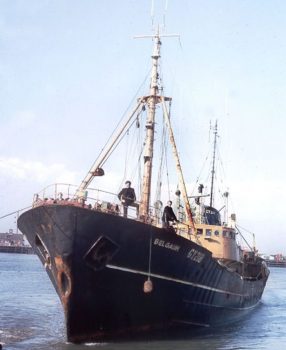
Why three weeks on a fishing trawler off the coast of Iceland was the ‘best lesson ever’ for one 11-year-old boy
Three weeks off the coast of Iceland on a fishing trawler, working 18-hour days with constant seasickness might sound like hell for many children today – however for one Grimsby boy, it was the adventure of a lifetime that made him into the man he that became. Robert Hanley had grown up seeing his father Bill embark on fishing expeditions from Grimsby’s docks and return with his paycheck as a ‘three day millionaire’. Fishing was in his family’s blood on both sides, and Robert wanted to follow in the family tradition. In the summer of 1965, when he was 11 years old, he finally got the chance to embark on that voyage. >click to read<09:02
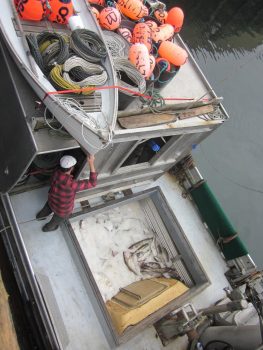
Study investigates shortcoming of ITQ systems for fisheries
Individual transferable quota systems for fisheries around the world may be ideal for some fisheries, but they can exclude rural, indigenous, low-income and next-generation fishermen from the industry, according to a new paper co-authored by a University of Alaska Fairbanks professor. “ITQs are being advocated across the board without much reflection on what individual fisheries need,” said College of Fisheries and Ocean Sciences professor Courtney Carothers. “ITQs might work well for some big industrial fisheries, but, for small-scale fisheries, they’ve had lots of negative consequences.”>click to read< 21:52
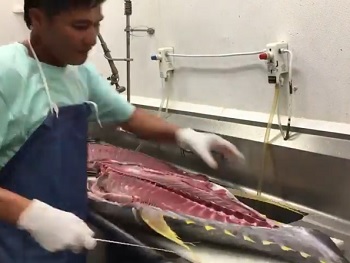
Practice, confidence key to breaking down a fish
I stepped tentatively into the fish-cutting arena guided by the patient, capable Ashley Watts, owner and operator of Local I‘a, which purchases fish from Oahu small-boat fishermen and sells them direct to restaurants and retail customers. Watts reaches the public via farmers markets and through a subscription program called a CSF, or community-supported fishery. Before taking me to the cutting board, Watts arranged for us to watch a master fish cutter at work. Talk about mastery of a craft. Self-taught Rodel Agonoy, who has been breaking down fish for 13 years, tackled a 110-pound yellowfin ahi caught by Kekoa Seward of Hawaii Kai, separating the meat from the spine and quartering it into giant fillets in about 3-1/2 minutes. Video, >click to read<21:10
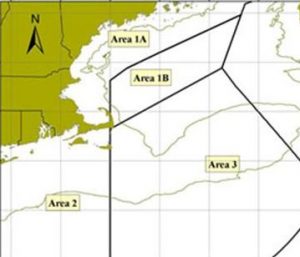
NOAA/NMFS – Reducing the Sub-Annual Catch Limits for Atlantic Herring Management Areas 1A, 1B, 2, and 3
These reductions go into effect today (August 22, 2018), and are based on the most recent stock assessment, which shows that the herring stock is in decline due to historic lows in recruitment over the past five years. To prevent overfishing in 2018, the new Management Area sub-ACLs are as follows: >click to read<16:33
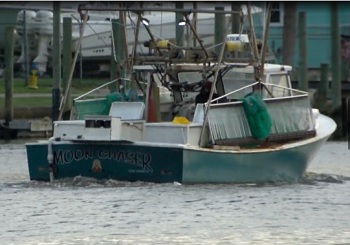
Pasco shrimpers’ incomes cut by red tide
The red tide crisis is hitting home for Pasco County shrimpers. They worry their way of life could be coming to an end. With dead fish washing ashore by the truckload, the demand for bait shrimp is shrinking. It comes down to a drop in demand. Bait shops aren’t buying bait shrimp in the red tide zones. And sport fishermen are staying away. That means, they’re not buying what fishermen catch. The shrimp is not the kind you see on your plate, it’s the kind other fishermen use to catch fish. Video >click to read<14:22
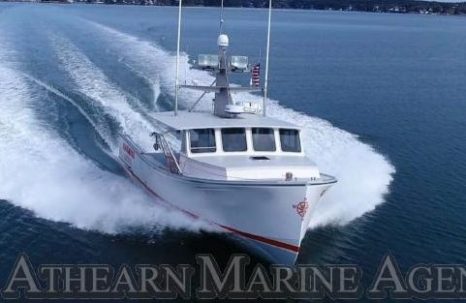
Athearn Marine Agency Boat of the Week: 46′ Mussel Ridge Lobster/Tuna, 750HP John Deere, Northern Lights-9 KW Aux.
Specifications, information and 10 photos >click here< To see all the boats in this series, >click here<12:25

Wrong man in prison for 2009 murder?
Only two people know what really happened on the July 2009 night when 52-year-old fisherman John Adkins was murdered at the Port of Ilwaco. His deckhand Walter Bremmer moved to Hawaii within days, then negotiated full immunity in exchange for his testimony. His business partner Erin Rieman pleaded guilty to manslaughter and went to prison for 11 years. It seemed like a closed case until 2012, when Bremmer murdered his neighbor Robert “Johnny” Leong using the same unusual method that was used to kill Adkins. With Bremmer in prison, Rieman appealed his case over and over, saying he only took the fall because Bremmer threatened to kill his girlfriend, daughter and grandkids.,, Recently, a federal magistrate concluded Rieman’s crazy story just might be true. >click to read<
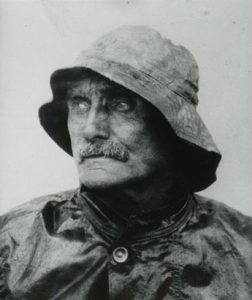
Newfoundland word of the day: Linkum (and where it comes from)
Here is what the Dictionary of Newfoundland English says about the word: lincoln n also linkum. A fisherman’s oilskin hat with elongated flap at the back; CAPE ANN, SOU’WESTER.,, Waterproofed cloth garments were used in the North Atlantic from the late 1700s, and what we think of today as the oilskins worn by sailors and fishermen were originally made from sailcloth coated with tar. Traditional black or “tarred” Sou’Wester hats were developed in the 1800s, but replaced the tar with linseed oil and lampblack. Scottish chemist Charles Macintosh patented a method in 1823 for binding two pieces of material together with rubber dissolved in naphtha,,, >click to read<10:24
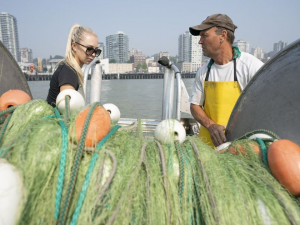
Father-daughter fishing tradition thrives with solid sockeye run on the Fraser
Each summer since she was four years old, Kirsten Jantunen has cherished days on the boat with her dad Roy, 55, helping work on the net, pick fish, drive, and whatever else a fisherwoman can do.
The 28-year-old realtor and owner of a uniform company keeps a packed schedule, but each season since her teenage years she has set aside time for fishing with her dad. She plans to keep the tradition going for the foreseeable future, she said Tuesday, in the middle of a sockeye opening in the Lower Fraser River.>click to read<08:59
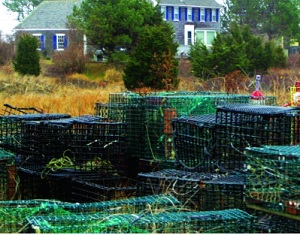
An Anti-Fishing Town? Home Storage Of Fishing Gear Dredged Up Anew
“Fishing has always been an important industry in Orleans,” Orleans Planning Board vice chair Chet Crabtree said Aug. 14. “We don’t want to discourage those who fish. On the other hand…there are people who have multiple boats and lobster pots stacked up quite high in the face of neighbors. I’ve heard complaints from other homeowners.” The town has not been aggressive in requiring special permits for such storage, and some may have “abused that laxness,” Crabtree said. >click to read<08:20

US Coast Guard Warns of LED Lighting Interference to Marine Radios, AIS Reception
The US Coast Guard says it’s received reports from crews, ship owners, inspectors, and other mariners regarding poor reception on VHF radiotelephone, digital selective calling (DSC), and automatic identification systems (AIS) when in the vicinity of LED lighting systems. This could include interior and exterior lighting, navigation lights, searchlights, and floodlights found on vessels of all sizes. “Radio frequency interference caused by these LED lamps [was] found to create potential safety hazards,” the Coast Guard said in an August 15 Marine Safety Alert. >click to read<19:47
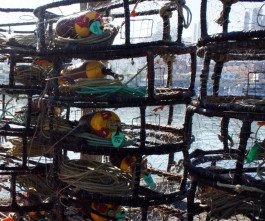
Crabbers to get federal disaster relief
The California Department of Fish and Wildlife (CDFW) has proposed a spending plan for federal Dungeness Crab disaster relief funding after taking input from fishermen, processors and charter boat operators. The state’s 2015 to 2016 commercial Dungeness and rock crab seasons were declared as fisheries disasters after being drastically curtailed due to algae blooms and the domoic acid toxin they produced. Approval of $28.8 million in federal relief funding was gained last June, with most of it covering Dungeness losses. Based on guidelines from the federal National Oceanic and Atmospheric Administration (NOAA) and feedback from industry stakeholders, CDFW proposes that 89 percent of the relief funding be spent on “direct payments” to commercial fishermen, buyer/processors and sport charter boat operations. >click to read<19:31
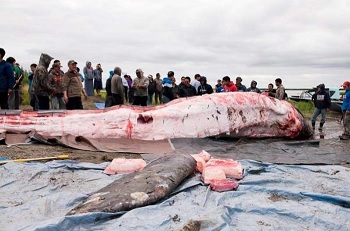
Alaska Natives believed whale hunt was legal, Enviro group critisizes NOAA
Indigenous hunters in Alaska initially believed they were legally hunting a beluga whale when they unlawfully killed a protected grey whale with harpoons and guns after the massive animal strayed into a river last year, a federal investigative report said. ,, “The hunters also believed that if they were the first ones to shoot or harpoon the whale, the kill would be theirs,” it states. “This comes with a large amount of community pride.”,, The hunt underscores the tension between animal rights activists who want to safeguard at-risk species and indigenous residents who depend on subsistence fishing and hunting as part of their ancient culture and traditions. The Washington, D.C.-based Animal Welfare Institute criticized NOAA for not pushing for charges over a violation of the Marine Mammal Protection Act. >click to read<17:02

Lobster Fishermen say $6M in taxpayer dollars for N.S. effluent plant is conflict of interest
Nova Scotia taxpayers have contributed $6 million toward design work and engineering studies for a new wastewater treatment plant that will handle effluent discharged from the Northern Pulp paper mill in Pictou County. Those against the plan to dump what comes out of the facility into the Northumberland Strait are not happy the province is picking up part of the cost. Those against the plan to dump what comes out of the facility into the Northumberland Strait are not happy the province is picking up part of the cost. “It’s a conflict of interest. A direct conflict of interest,” said Ronnie Heighton, a lobster fisherman and president of the Northumberland Fishermen’s Association.>click to read<15:50

Farmers protest California water plan aimed to save salmon
Hundreds of California farmers rallied at the Capitol on Monday to protest state water officials’ proposal to increase water flows in a major California river, a move state and federal politicians called an overreach of power that would mean less water for farms in the Central Valley. “If they vote to take our water, this does not end there,” said Republican state Sen. Anthony Cannella. “We will be in court for 100 years.” Environmentalists and fishermen offered a different take on the other side of the Capitol to a much smaller audience. “For the 50 years corporate agriculture has been getting fat,” said Noah Oppenheim of the Pacific Coast Federation of Fishermen’s Associations. “Salmon fisheries have been tightening belts.” >click to read<13:17
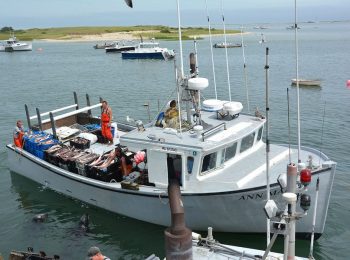
Can dogfish save Cape Cod fisheries?
Cape Cod has nearly lost its namesake fish, due to overfishing and climate change. So fishermen have switched to dogfish, skates, and other more plentiful options. This move could help revive the Massachusetts fishing industry, and might even help the cod rebound, researchers say. But getting Americans to bite may not be as easy. “This is the fish we could feed the United States with,” says Chatham fisherman Doug Feeney. “We have people that are hungry. We have prison systems. We have vets. We have homeless people. There’s just so much that can be done with this product.”>click to read<10:49
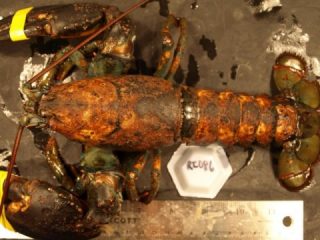
Epizootic Shell Disease – New findings suggests earlier springs and hotter summers foster increase in shell infections
New findings reveal that as coastal waters in the northeastern U.S. continue to warm — bottom temperatures in Long Island Sound have increased 0.7°F per decade over the last 40 years — resident lobsters are becoming increasingly susceptible to epizootic shell disease, a condition that has depleted the southern New England population and severely impacted the local lobster fishery.,,, As the name implies, epizootic shell disease occurs when the bacterial populations that normally inhabit the surface of a lobster’s carapace change and begin consuming the cuticle, causing it to erode. >click to read<09:18

Why fisheries management is plagued by the panacea mindset
Fisheries management has often been characterized by regulatory policies that result in panaceas—broad based policy solutions that are expected to address several problems, which result in unintended consequences. An international research team shows how one size fits all policies like individual transferable quotas may be doomed from the onset, as these policies perpetuate “the panacea mindset.” The team calls for a more customized policy approach in a new piece in the Proceedings of the National Academy of Sciences. >click to read< 20:39
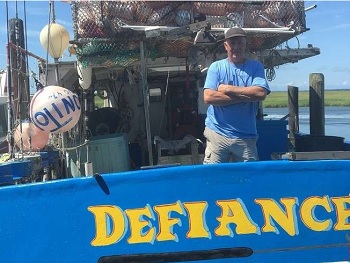
This Summer Seafood Shack Isn’t Your Everyday Jersey Shore Restaurant
It’s Fourth of July, and Bill Bright, a 60-year-old commercial fisherman who owns the best seafood restaurant between Atlantic City and Cape May, hopes nobody wants to buy crabs today. Bright looks like Joe Biden’s outdoorsy younger brother and runs Hooked-Up Seafood in Wildwood, the southernmost barrier island of the Jersey Shore, with his wife, Michelle, and four kids.,, Bright’s boats, Retriever and Defiance, run up and down the coast from Virginia to Long Island, fishing off the continental shelf. Whatever they catch winds up on the menu at Hooked-Up: yellowfin and big-eye tunas, mahi, swordfish, once in a while some prized John Dory. Fueled by word of mouth and devoted repeat business, Hooked-Up has blossomed over the last nine seasons into the place in-the-know locals go for seafood.> click to read<16:30






